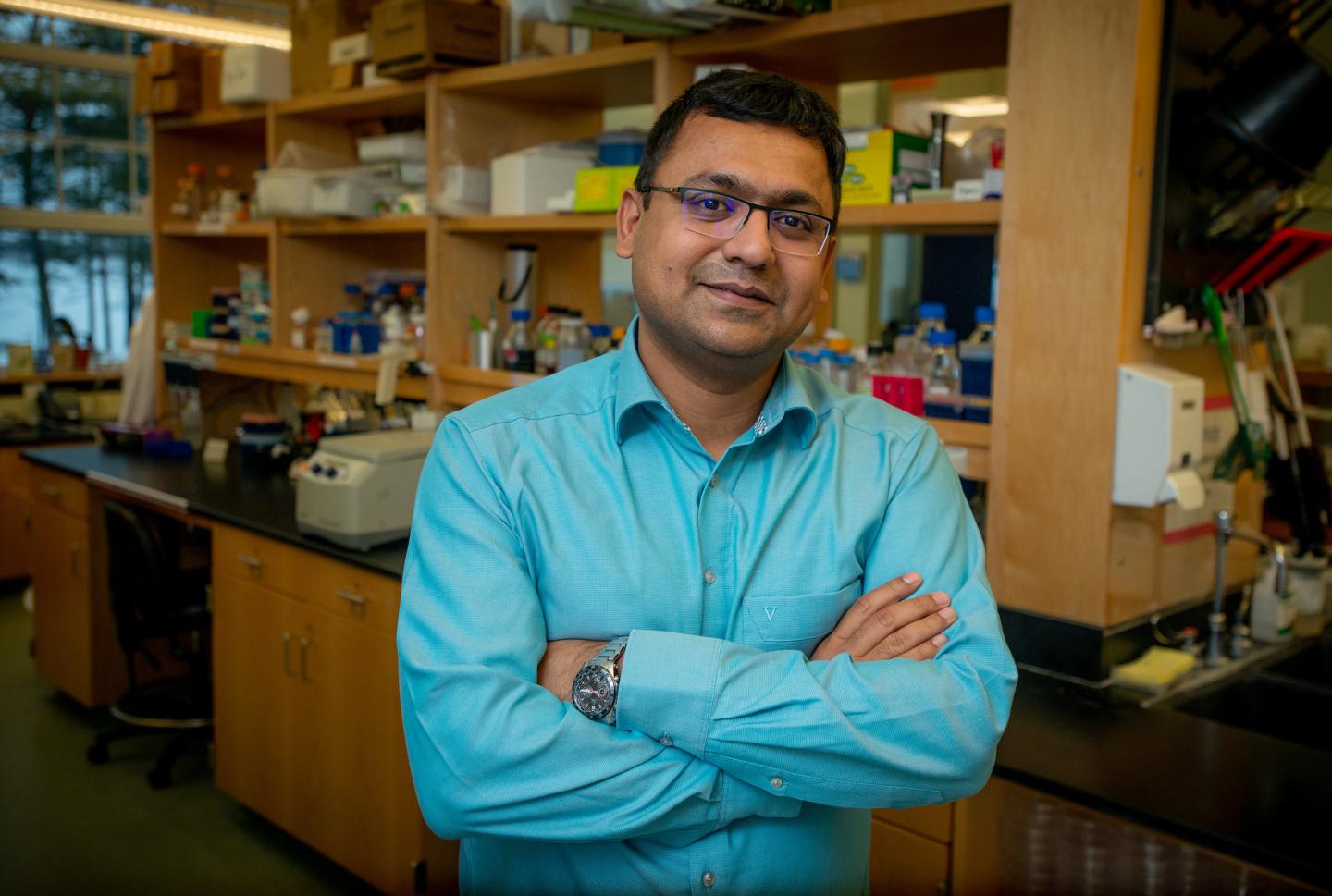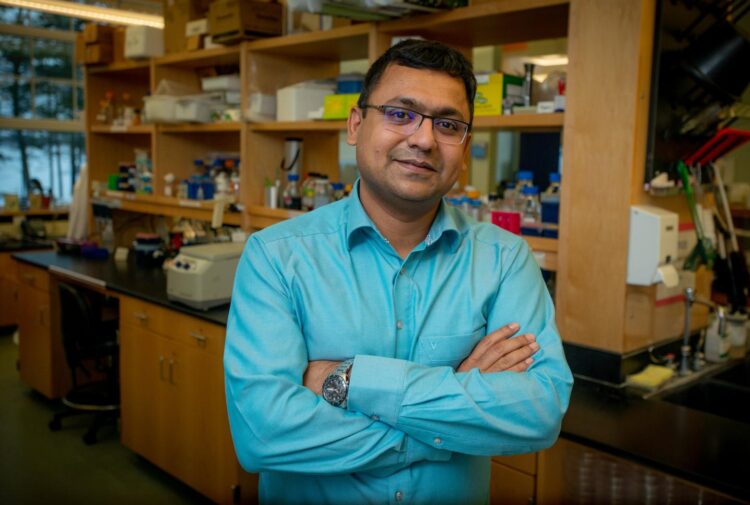Prayag Murawala, Ph.D., will study tendon regeneration after injury in salamanders

Credit: MDI Biological Laboratory
BAR HARBOR, MAINE — Modern medicine has made tremendous strides in replacing organs and hips. But what about those all-important tendons, which enable joint movement by connecting muscle to bone? Tendon injuries, such as those in the knee, elbow, Achilles tendon and rotator cuff (shoulder) exact a huge cost in terms of health care, productivity and quality of life.
Prayag Murawala, Ph.D., a scientist at the MDI Biological Laboratory in Bar Harbor, Maine, has received a grant of €280,000 ($332,000) to address the problem of tendon injury. He is seeking to determine if the same cellular and molecular mechanisms responsible for regenerating tendons during limb regeneration in the axolotl, or Mexican salamander, also come into play during tendon regeneration after injury.
The subject of the study draws on Murawala’s previous research on the mechanisms governing tendon regeneration in the axolotl limb. The knowledge gained from the study of tendon regeneration in the axolotl could one day be used to develop drugs and therapies to trigger tendon regeneration in adult humans, who are for the most part incapable of regenerating tissues and organs.
Murawala and colleagues at the MDI Biological Laboratory’s Kathryn W. Davis Center for Regenerative Biology and Aging use the axolotl, which is considered nature’s champion of regeneration because of its ability to regenerate almost any body part, including limb, heart, brain, eye and spinal cord, to explore why the axolotl is capable of such remarkable feats of regeneration while humans are not.
“Very few labs in the world are studying tendon biology, which is surprising given how common, painful and debilitating tendon injuries are, and the fact that existing treatments often fail to fully restore function,” Murawala said. “This grant is great because it will allow us to apply what we have learned from our studies of limb regeneration in the axolotl to an area of biology that is in urgently in need of greater investigation.”
In the United States, more than 15 million soft tissue and ligament injuries, which include tendon injuries, are reported every year, with Achilles tendon injuries being one of the most common due to overuse or repetitive use. Though tendon injuries are often associated with athletes, such injuries also occur among sedentary populations and are common among the elderly due to age-related degeneration.
The three-year grant from the Deutsche Forschungsgemeinschaft (DFG), or German Research Foundation, which is financed by German state and federal governments, will support the salary of a doctoral student and consumable laboratory supplies. The student’s time will be divided between the MDI Biological Laboratory and Hannover Medical School in Hanover, Germany, where Murawala also holds an appointment.
“We are very grateful to the German Research Foundation,” said Hermann Haller, M.D., president of the MDI Biological Laboratory. “Because of our focus on aging, we are especially interested in applications for the elderly, for whom the traditional treatments for age-related tendinopathy, such as surgical stitching, are more challenging due to the deterioration in tissue structure and healing ability that occur as we age.”
In his earlier research on limb regeneration in the axolotl, Murawala discovered that cells in a regenerating limb called fibroblasts acquire stem cell-like capabilities that allow them to differentiate — or transform into — tendon progenitor cells. Tendon progenitor cells are the main source of the various types of connective tissue that proliferate to form a newly regenerated limb, including tendon tissue.
The grant will allow Murawala to study whether a fibroblast’s capability to transform into a tendon progenitor cell occurs only during full limb regeneration, or if it also takes place during injury; and, if the same mechanism is employed to heal a tendon injury as to regenerate a limb, what molecular signals guide the transitions that occur during the regenerative process and why they occur in axolotls and not in humans.
The grant will also allow him to study the role of the extra-cellular matrix (ECM), which is the three-dimensional network surrounding the cell, in the transformation of fibroblasts into tendon progenitor cells. Earlier research has demonstrated that the remodeling of the ECM is critical to tendon regeneration.
Murawala’s interest in tendon regeneration represents one facet of his broader quest to understand limb regeneration. But his research also has applications for other types of regeneration, including kidney regeneration, which is a focus of research at the MDI Biological Laboratory. “What we learn about regeneration in one part of the body can be useful for understanding regeneration in other parts of the body,” he said.
Marawala, who recently joined the MDI Biological Laboratory, was formerly a postdoctoral fellow in the laboratory of Elly Tanaka, Ph.D., a highly regarded scientist who studies limb and spinal cord regeneration in the axolotl at the Research Institute of Molecular Pathology in Vienna, Austria.
###
About the MDI Biological Laboratory
We aim to improve human health and healthspan by uncovering basic mechanisms of tissue repair, aging and regeneration, translating our discoveries for the benefit of society and developing the next generation of scientific leaders. For more information, please visit mdibl.org.
Media Contact
Stefanie Matteson
[email protected]
Original Source
https:/





